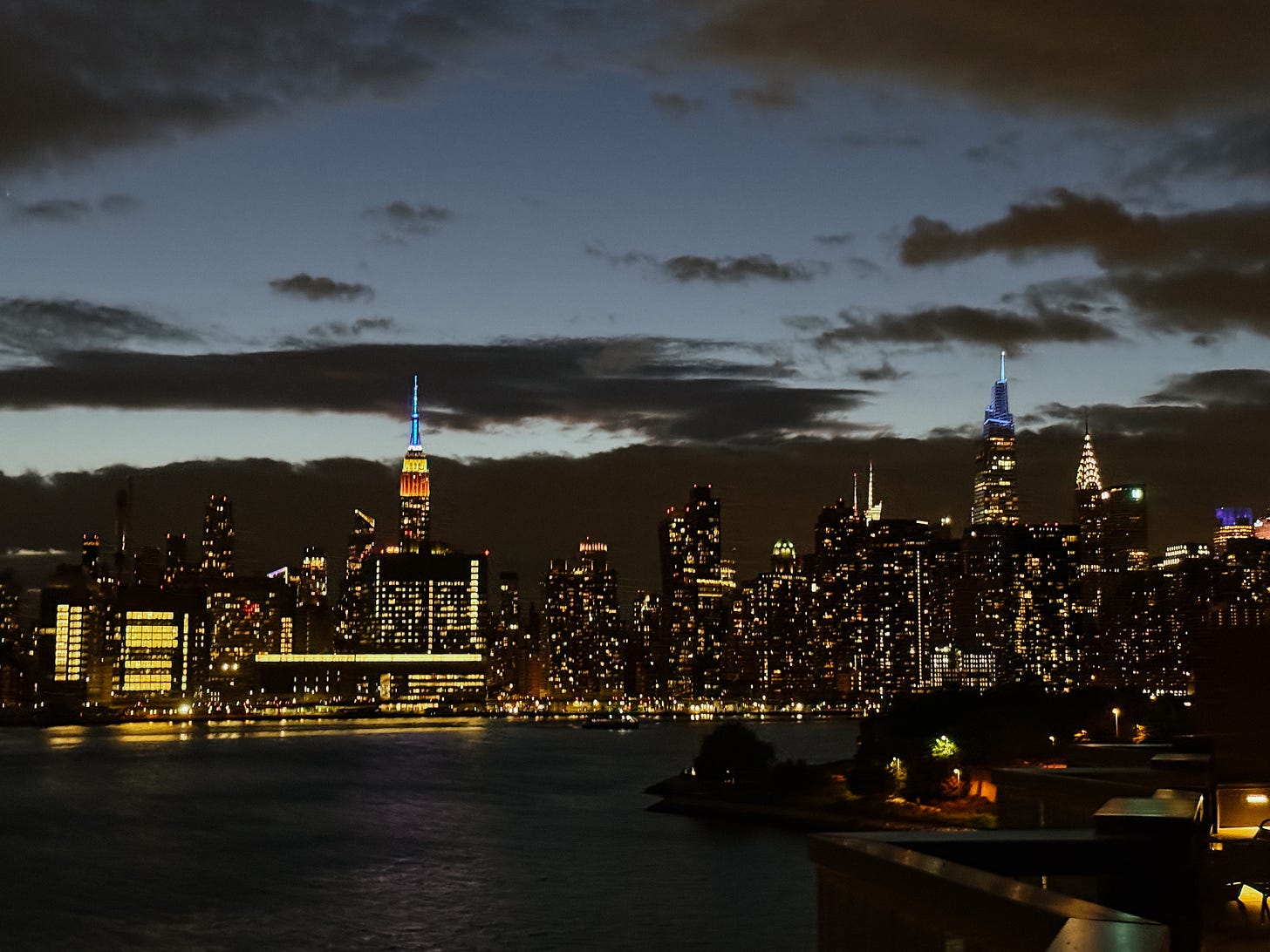before the story ends
in pursuit of uncertainty
Clouds like crumpled comforters cover the sky. Barely visible precipitation coats the city with such familiarity, you'd think it's always raining like this, that the sun could never shine in a place like this. With its finality, this weather feels like the end of something. It feels like I should know all the answers, reaching the conclusion of a story I can't quite identify. Everything that's going to happen has already happened, and nothing that follows will change what I already know. That's what it means to be at the end, right? Even without knowing the story, I feel the desire to try and find its conclusion.
It's the same impulse I find myself annoyed by in others — the certainty with which people assert themselves about the nature of life, arbitrary rules that they believe the world follows, half-baked predictions about how things will happen. People are so quick to create theories about the state of the world or how things are changing with a confidence that feels completely unwarranted. How can you be so certain that you understand the world? How can you be so certain about anything?
In reality, you can only be certain about something after it's already happened. You look back at it, you consult your memories and your artifacts to draw conclusions about what happened. There is only so much you can learn though — an event, a relationship, a season of your life may have ended, but life itself keeps going. Even if you learn something from your past experiences, it's uncertain that anything will happen again in the same way, that you can be certain of anything that will happen going forward, that you could really know what it is your life is becoming.
My approach to writing reflects this belief. By writing weekly, I often write about things (seasons, moods, residences) before they end. I write in a state of constant uncertainty. I make statements and try to frame my world in the most comprehensible way possible in the few days I have between one week and the next. And of course, I constantly change my mind and contradict myself from week to week. It feels like the right response to uncertainty.
How many times have I thought I have discovered the most ideal way for me to live, or the right way to think about love? How many times have I completely given up on a powerful declaration of a vision? Too many to count, which is why I rarely present my thoughts dogmatically. Still, I forget about my uncertainty sometimes. When I get excited about an idea, I have an impulse to think that I've got it all figured out, or at least pretend like I have it all figured out to make a stronger argument.
I'm not unique here — I think we are all too quick to imagine ourselves at the end of a story before it has ended, to reach for certainty when it is truly just beyond our grasp. Has your relationship to your hometown ended just because you moved away? Does your time in your old career not still guide your hands at times? Did your love for your grandparent falter when they passed? How can you say, with any certainty, what these things were, when you still take breath, when you continue to experience them every day?
I started thinking about this after listening to a podcast with Ezra Klein where New Yorker writer Andrew Marantz referenced the George Orwell aphorism, “Seeing what’s in front of one’s nose needs a daily struggle,” adding on “And I think to see things clearly, you need to not be writing backward from the end of the story.” To stay in this struggle, to attempt to see clearly, requires a level of uncertainty and an openness to see how the story could keep unfolding. To wait for the end.
💧 Drops of the Week 💧
PLAYLIST - verano - summer vibes despite the chilly weather
POEM - “Clouds” by Alice Notley - Be something for me this time.



beautiful words as always! i don’t deal with uncertainty well, but when you reframe it this way, life being in flux is actually a good thing! knowing nothing is final feels very freeing
Lovely Nikhil